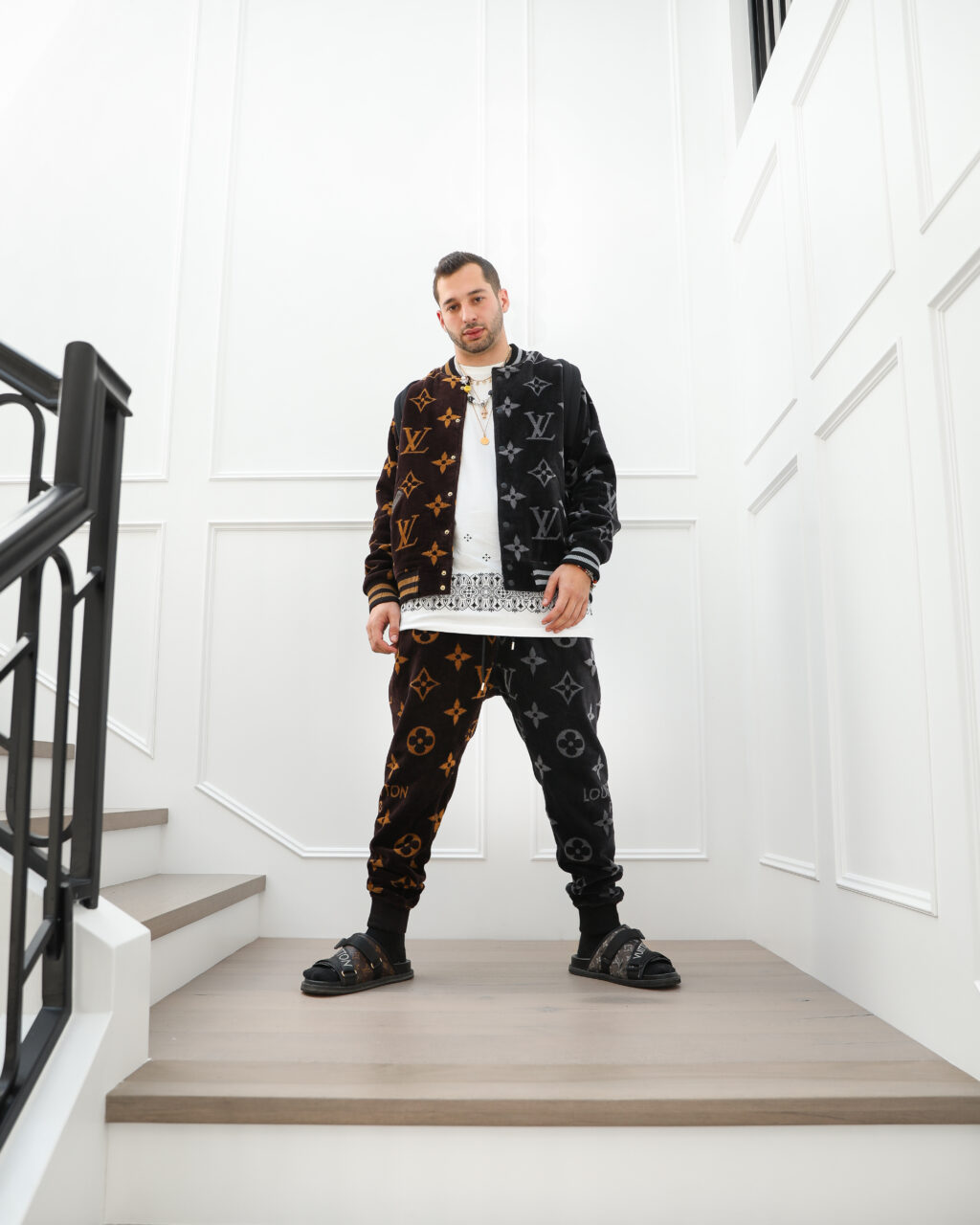Words by Kimberly Haddad
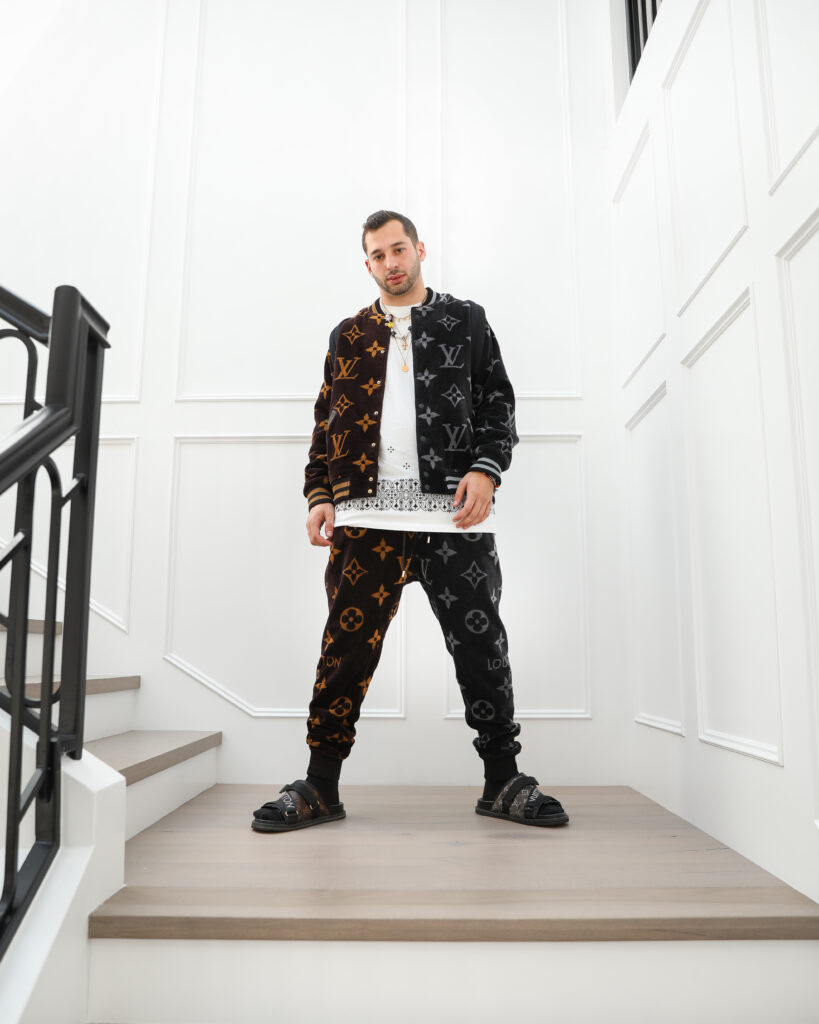
An audacious entrepreneur with a humble heart, Etai Drori is transforming classic high-fashion textiles into exclusive streetwear trends that have gained prominence from beloved luminaries, including Billie Eilish and TYGA. From adolescent Ninja Turtles bed sheets to vintage Louis Vuitton towels, Drori spawns a medley of custom one-of-a-kind treasures from chairs, lighters and duffle bags to mini backpacks and life-sized teddy bears. A creative at his very core, the designer never falls short of quality and craftsmanship, continuously honing his craft and pushing boundaries of the expected. We spoke to Drori about his childhood, the secret to establishing your own style and what is means to be a skilled hustler.
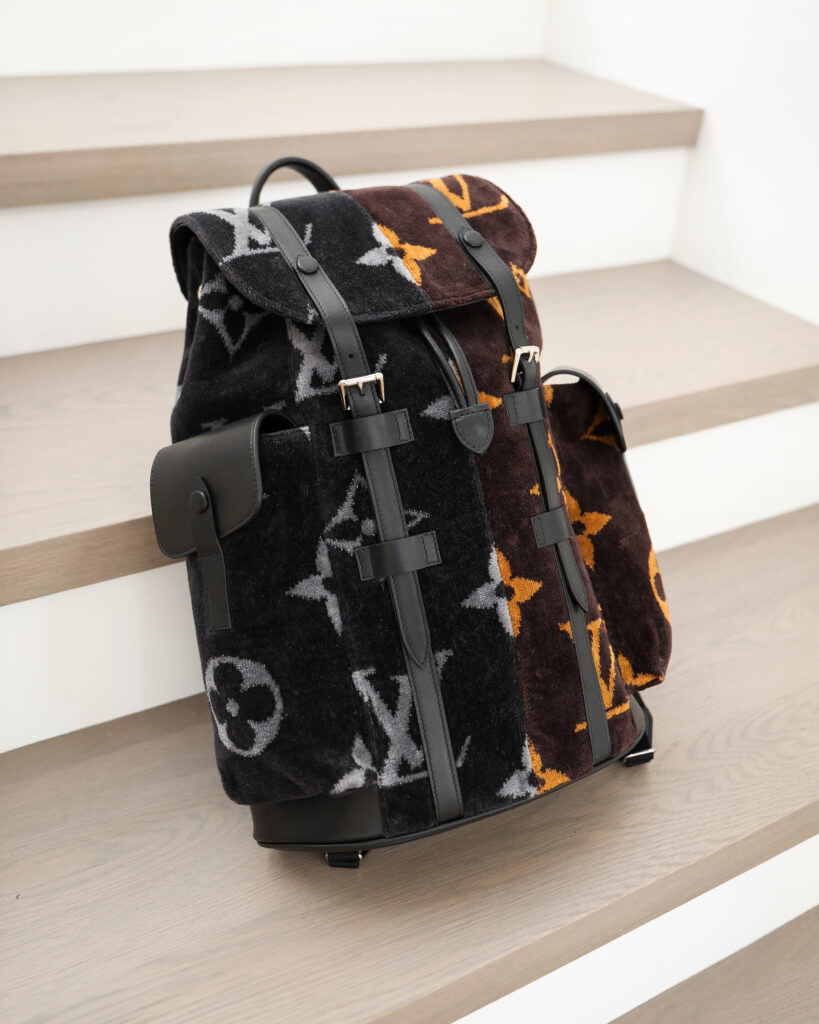
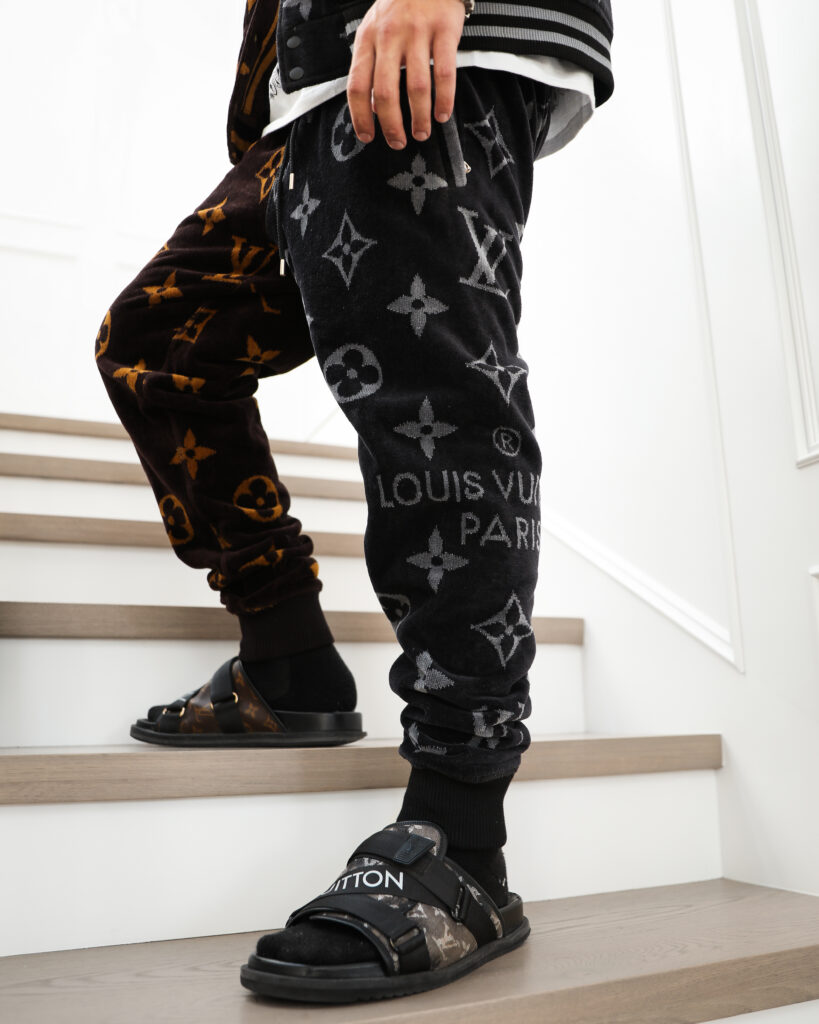
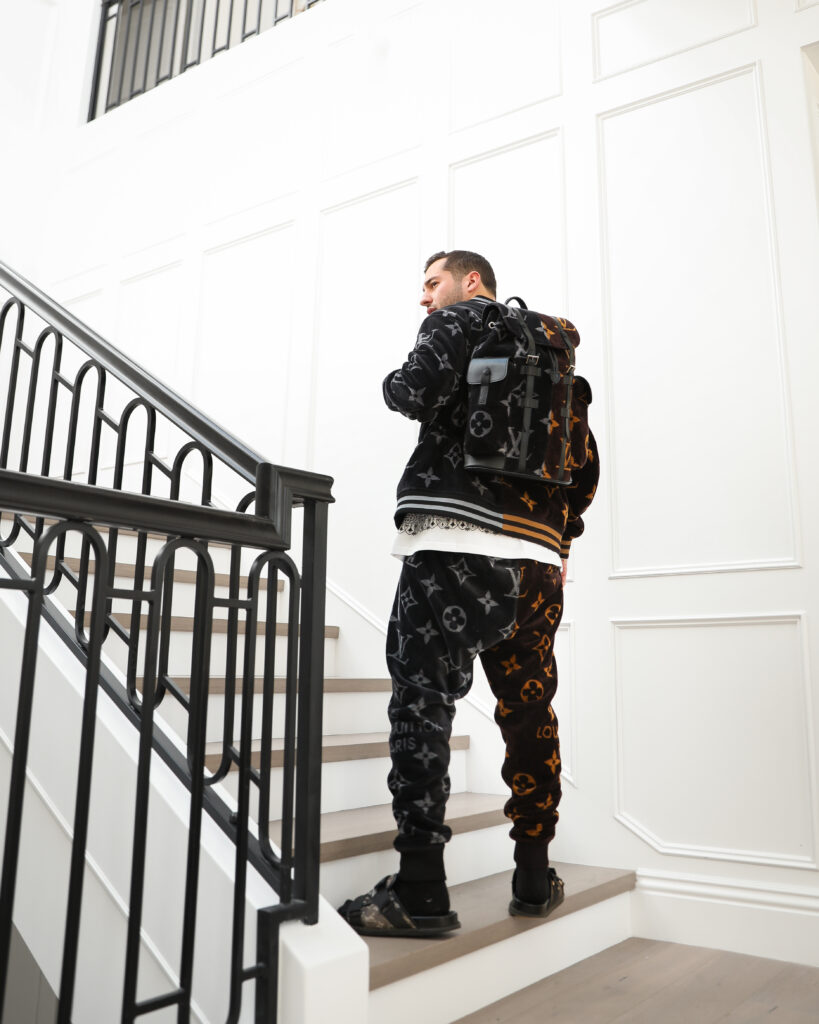
BASIC: You are a wonderfully crafty and well-connected designer. Let’s dive into your background and upbringing. What were you like as a child and what led you into the world of fashion?
ETAI: Well, I dropped out of school the day I turned 18 and I didn’t finish high school. At a young age, my parents kicked me out. I was a trouble maker and my dad and I didn’t really get along. I was in and out of the house my whole life. I went to four different schools and was kind of all over the place. My mom is a fashion designer and my dad was kind of all over the place too. But my mother did women’s clothing and she never thought I would ever be on a sewing machine. I used to play a lot of sports as a kid. I was always into art and when I was about 15 years old I got run over by a car and spent about a year in a cast. And between that, getting arrested and being on probation, there was only so many video games I could play, you know? So, I started drawing. This was around the time when stickers were a big thing and I would just draw all the time. When I was in school, I never did any work, I would just draw. And I never really bothered anyone until they took my notebook from me. The second anyone took it from me—I didn’t care if you were a security guard—I would freak out on you. I was on probation for quite some time, but that was how I kind of kept my head on straight.
BASIC: You mentioned your mother never thinking you would learn to sew. When was the first time you sat down in front of a sewing machine and created something?
ETAI: I was probably around 17 or 18 years old.
BASIC: Can you tell us about one of the very first things you designed and sewed and how you felt when the final product came to life.
ETAI: It wasn’t like that. The first thing I tried to do was fix something and it was terrible. I tried to fix a rip in a pair of jeans, but I could barely sew a straight line. I was more of a painter and I used to paint on sneakers, but the paint would eventually come off. And it was kind of whack to work so hard on painting something just to watch it come off after someone wore it one time and then have to fix it for free. So, I learned how to sew on top of sneakers, like how to sew a Nike sign on top of sneakers. And that was cool, but it didn’t really fulfill anything for me. And there were a lot of people who were just cutting out fake Louis [Vuitton] into a Nike sign and gluing it on top of a shoe. So then I learned how to fully rebuild a shoe from scratch. Like I can pattern and do all that type of stuff. Then I kind of lost my passion for shoes because everyone started doing them and I would work super hard pretty much doing what I’m doing now, but with sneakers. I would take vintage Versace jeans and make them into Air Max sneakers or Jordan’s, all this crazy shit and no one gave a fuck about it. All they wanted were these fake Louis Vuitton glued-on Air Forces and that kind of swept me under the rug. After that I just sort of lost my passion. When I was making myself sneakers it was fun, but when I started making them for someone else it was like hell. It was always work, but it was discouraging work. So then I created the lighter and that changed everything.
BASIC: Tell me more about the lighter.
ETAI: The lighter allowed me to build an infrastructure. It let me take it from a hobby to a high-end business. It taught me how to put a team together and operate a business, to get on the books and pay taxes properly. I learned how to do bags and people started going crazy for those, so I started doing clothes and now the clothes are what everyone wants. Now, I am transitioning to furniture. It’s like this never-ending circle.
BASIC: Many people verbalize wanting to learn how to do certain things and simply never find the time. You however, taught yourself how to build a sneaker from scratch. What resources were available to you when you began this journey?
ETAI: I mean, I received help from people. There are people who taught me how to do a lot of what I know. Still, to this day, I never really go into something blind, especially when thousands of dollars’ worth of materials are involved. I was able to get some good guidance for my clothing and furniture, you know? It’s one of those things like where if you can get something from IKEA and you follow instructions and can build it, you feel like you can build almost anything. Then you go explore on your own and figure it out. When you take something apart—if you pay enough attention—you can figure out how it was put together. It’s kind of a never-ending thing. I am still learning new things on a daily basis. I’m still getting taught things in every whelm. I don’t just do what people say. For me to present something on my social media I have to perfect it, and with that comes trial and error. There’s no way around that. Anything from drawing, painting, sculpting, stitching, they’re all similar, you just kind of have to figure it out and perfect it.
BASIC: You gained a great deal of traction once you began crafting custom pieces for Billie Eilish and TYGA. Can you talk to us about this and what additional opportunities resulted from this expo- sure?
ETAI: I’ve been working with a lot of artists for quite some time. I’m just not a big person on taking pictures and fanning out on people, but I work with pretty much everyone. Now, it’s kind of like taking it to a whole new level because at first, it was just sneakers or a bag and now I am able to make someone something from head to toe. And I feel like TYGA and Billie and people like that are people who understand what I’m doing. You know, I could like put my stuff on anyone in the world. If I wanted to make Drake a jacket, he would wear it, but that doesn’t mean anything to me. I want the person to be involved in the design process. You have to appreciate it the same way I do, otherwise it’s just me wasting time. I don’t really work with too many people unless it’s direct.
BASIC: Some of the best brands have a visionary who sets the design philosophy. Talk to us a little bit about your personal design philosophy and overall brand.
ETAI: Unfortunately, I don’t get to design the way that I dream. I’m working with very limited palettes. Everything I use it authentic. I don’t get the luxury of using any pattern or color that I want. I have to look at what’s in front of me, what I can purchase and what I can make of it. It’s tough because sometimes I feel like I’m in a box, if that makes sense. That’s kind of what spawned the towels because that’s like the biggest piece of material I can find.
BASIC: Where do you hope to take your business in the near future? What are you currently working on that we aren’t seeing on social media?
ETAI: I connect a lot of dots. I’m a creative more than anything so I connect a lot of dots for my friends. I just opened up my first restaurant, I’m working on three ice cream shops and another restaurant. I’m working on putting together this TV show for a couple other artists, you know, things of that nature. I feel like everyone expects me to make a clothing company or a bag company, but that doesn’t really bring any joy to me, it just makes money. What really makes me happy is connecting the dots and helping other people, seeing them smile and having fun.
BASIC: You wear many different hats as a creative and that it very inspiring. Are you able to give us a little insight into the restaurants and ice cream shops?
ETAI: Unfortunately, it’s a little premature for me right now, but everything is in the works and it’s with a few YouTubers.
BASIC: Well, that’s a shame, but we will definitely keep an eye out for things to come. Do you have advice for aspiring fashion designers or entrepreneurs who are trying to build their own brand?
ETAI: Don’t stop working. That’s the best advice I can give. Don’t sign your life away and don’t think you need other people to do it. Don’t think you need to go to school, but if you don’t go to school, be ready to work 28 hours a day and 10 days a week, you know what I mean? I don’t ever turn off. I work 24 hours a day, seven days a week. You have to be ready to give your whole life to it, lose your friends, your girlfriend. If you’re not ready to commit to it 100 percent, it won’t happen. People used to think I was crazy, some still think I’m crazy. So many people talked down to me. So many people told me I fucked my life up, and while the money doesn’t matter, I now make more money than all my friends combined. I take care of my parents, I spoil the shit out of my mom. Me and my parents had a bad relationship and now they couldn’t be prouder. So, the best advice I can give you is don’t ever stop.
BASIC: We live in a world where fashion trends are defined by social media influencers, pieces from larger designers are being replicated and sold in retail stores for a fraction of the cost and styles are constantly evolving. I’m curious what you think the secret is to creating your own flair and aesthetic?
ETAI: I think that social media plays a positive and negative role here. I don’t follow too many designers. If it makes sense, I try to have kind of an arrogance in the fashion world. I try not to be too influenced and do what I love while also having a vast knowledge of history. There’s a difference between copying and being inspired. And there’s a lot of different types of fashion. What I do versus production work and high-end runway work is all set up and built differently. So, I think what inspires each person is a little different. I follow some amazing people who are fashion designers who are inspired by architecture. I follow people who are inspired by vintage stuff. I think everyone has their own thing, but it’s important to try and invent something that hasn’t been done before or if it has been done, try to do it differently, but a better version.
BASIC:You’re a hustler and are consistently engaged in multiple passion projects simultaneously. I imagine it’s easy to become overwhelmed and mentally exhausted. Do you have any hobbies or practices that you turn to in order to recharge and bring yourself back to your creative endeavors?
ETAI: I think everyone has creative blocks, but I think when you finally find that niche of something you love, you get passed those blocks. I mean, I get to hire a lot of my friends, I have family members who work for me, I have taken in homeless kids to work for me full-time. When I get to see people like that, it kind of puts a new kick to my behind and inspires me. I have employees and people that I have to feed no matter what, so you kind of get forced to put yourself into a creative hustle. I consistently get creatively blocked; I just don’t ever stop pushing. It’s tough for me because materials are limited and it’s very expensive to do what I do, but I think no matter what, whether a creative or a business man, you’re going to get into your own head and everyone deals with that in their own way. Only you can teach yourself how to handle that.
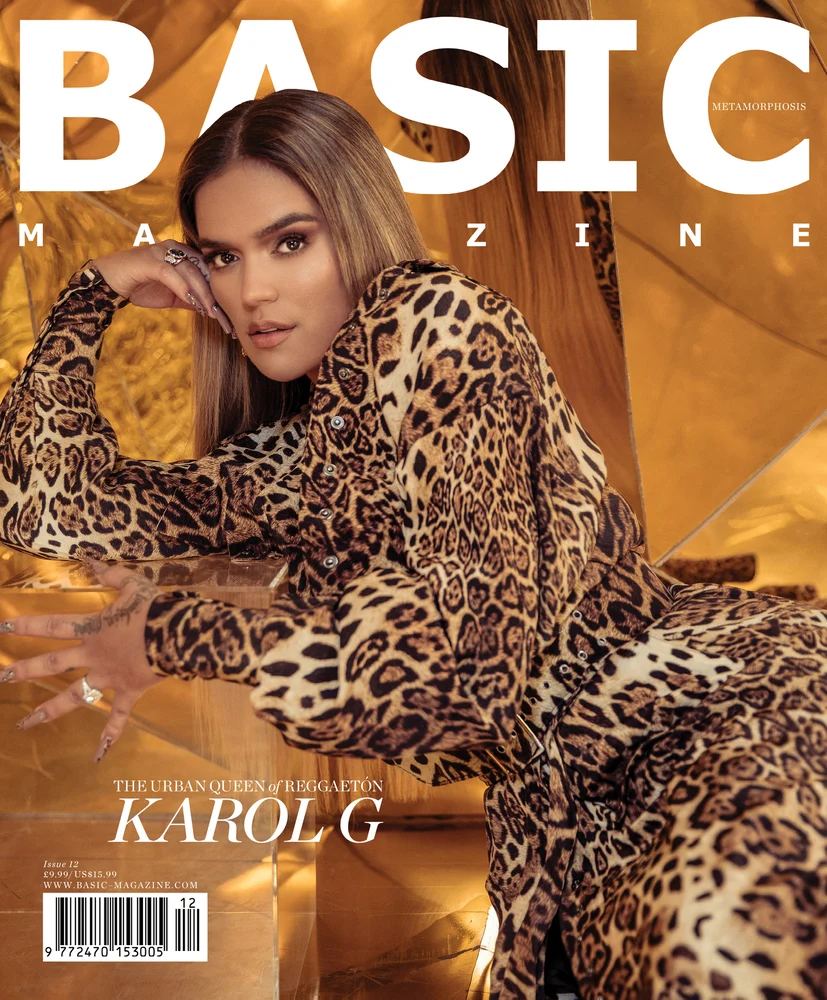
You may also like
-
Staying Loud, Staying True: Spacey Jane’s Evolution from Perth to the World
-
Reframing Narratives with KATHERINE FLYNN
-
FIGHT TO THE OTHER SIDE: Hilary Roberts on Suffering, Freedom, and Sharing her Mafia Gifts
-
SEXY 4EVER – An Interview with INJI
-
BREAKING BREAD with GAVIN ROSSDALE: A Conversation about Music, Food, and the Art of Hospitality
-
UNCOVERED: The Liberation of MODEL ROZ
